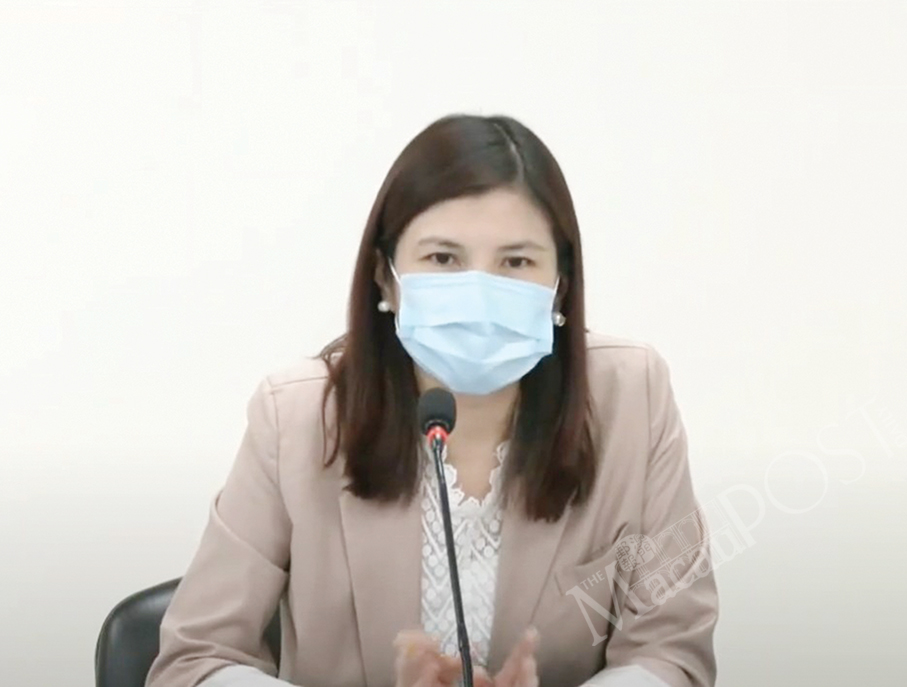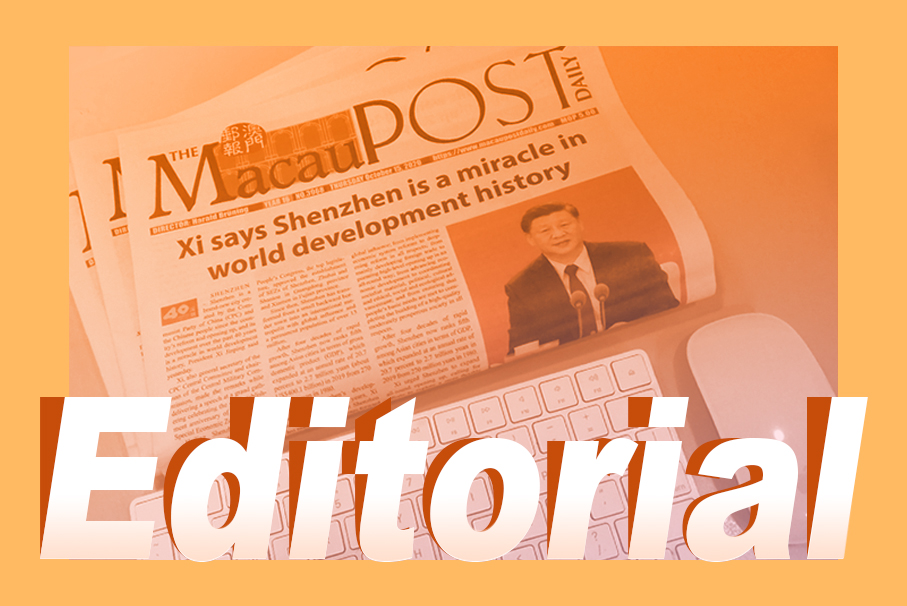The Health Bureau (SSM) noted yesterday that those who need to undergo a COVID-19 nucleic acid test (NAT) within three months after having been discharged from COVID-19 isolation are required to undergo a test where his or her swab will not be mixed with other testees’ swabs, known as an individual-sample test.
An individual-sample test is more expensive than a mixed-sample test.
Wong Weng Man, acting chief of the Health Promotion Division of the Health Bureau, made the remarks during yesterday’s weekly press conference by the Novel Coronavirus Response and Coordination Centre.
Macau’s regular COVID-19 NAT programme adopts a 10-in-1 mixed testing approach, where 10 swabs are mixed in a batch of pooled samples, in normal circumstances. However, in special circumstances testees are required to undergo an individual-sample test.
The 10-in-1 mixed sampling technique enables laboratories to come up with results in a much shorter time. However, if a batch of pooled samples tests positive, the 10 respective testees will need to have their swabs taken again – in which case their swabs will not be mixed – in order for laboratory technicians to identify which of them has really tested positive for COVID-19.
Currently, each COVID-19 test costs 45 patacas in Macau’s regular NAT programme. However, a testee who is required to undergo an individual-sample test has to pay 150 patacas for each test.
Those who commute between Macau and Zhuhai are required to undergo a paid COVID-19 nucleic acid test regularly.
During yesterday’s press conference, Wong noted that those who had tested negative for COVID-19 after recovering from the novel coronavirus disease are likely to test positive for the virus again a relatively long time after their recovery, i.e., “re-positive” cases.
Consequently, Wong said, if a person who has recently recovered from the novel coronavirus disease undergoes a mixed-sample test, the respective batch of 10 mixed samples are very likely to test positive for COVID-19, because of which the 10 respective testees will then need to undergo an individual-sample test, i.e., required to have their swabs taken again. Wong said that such a situation will cause great inconvenience to other testees whose swabs have been mixed in the same batch of pooled samples.
In addition, Wong also said that in case a batch of 10 pooled samples tests positive for COVID-19, the Health Bureau will have to make an announcement accordingly. Even if the bureau finally confirms that nobody has been infected with the novel coronavirus and that the pooled samples’ positive result is merely due to a testees “re-positive” situation, such an announcement might cause “panic” in civil society, Wong said.
With the aim of preventing such a situation from occurring, Wong said, those who have been discharged from COVID-19 isolation within three months are required to undergo an individual-sample test instead of a mixed-sample test, if they need to undergo a COVID-19 nucleic acid test. Wong also said that this requirement is also justified by the fact that Macau has had a relatively higher number of imported COVID-19 cases per day on average in recent months.
Furthermore, Wong also underlined that an individual-sample test means that its cost of test reagents is 10 times the average cost of each testee in a mixed-10-sample test, because of which an individual-sample test is more expensive than a mixed-sample test.
2 batches of pooled samples ‘weakly’ tested positive
Meanwhile, during yesterday’s press conference, Wong also revealed further details about a case last Friday in which two batches of 10 pooled samples “weakly” tested positive for COVID-19.
According to a Health Bureau announcement on Saturday last week, in response the bureau arranged for the 20 respective testees to undergo an individual-sample test. The 20 people finally tested negative for COVID-19 in their respective individual-sample tests, Saturday’s announcement said.
During yesterday’s press conference, Wong said that all 20 people were then taken by ambulances to the public Conde de São Januário Hospital Centre for an individual-sample nucleic acid test. As all of them finally tested negative, Wong said, the Health Bureau concluded that none of them had been infected with COVID-19.
Wong revealed that all of the 10 testees involved in the first batch of pooled samples had recently completed COVID-19 quarantine after arriving in Macau from Hong Kong or Taiwan, while a testee involved in the second batch of pooled samples is a visitor from Taiwan who had recently completed quarantine after arriving in Macau.
Meanwhile, Wong also reaffirmed that the Macau government will dynamically adjust its strategy for COVID-19 prevention and control in accordance with the latest COVID-19 developments worldwide, and the latest guidelines from the World Health Organisation (WHO) and from the mainland’s health authorities, while also considering Macau’s real situation.
Wong also noted that as of Wednesday, Macau had had no COVID-19 community cases for 54 consecutive days, after the city’s latest COVID-19 outbreak that began on June 18 had subsidised.

Wong Weng Man, acting chief of the Health Bureau’s (SSM) Health Promotion Division, addresses yesterday’s press conference about the city’s COVID-19 situation. – Photo: GCS





